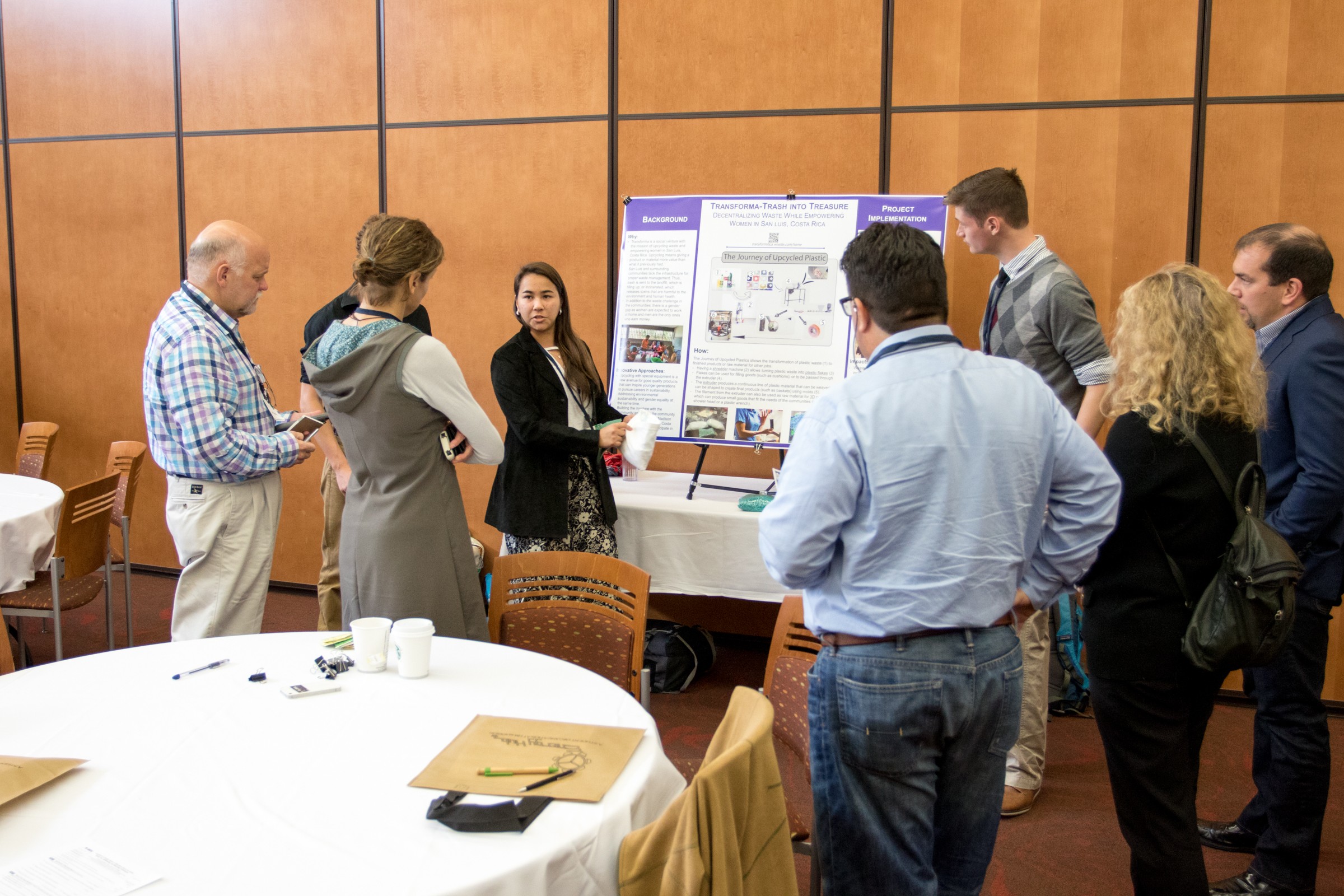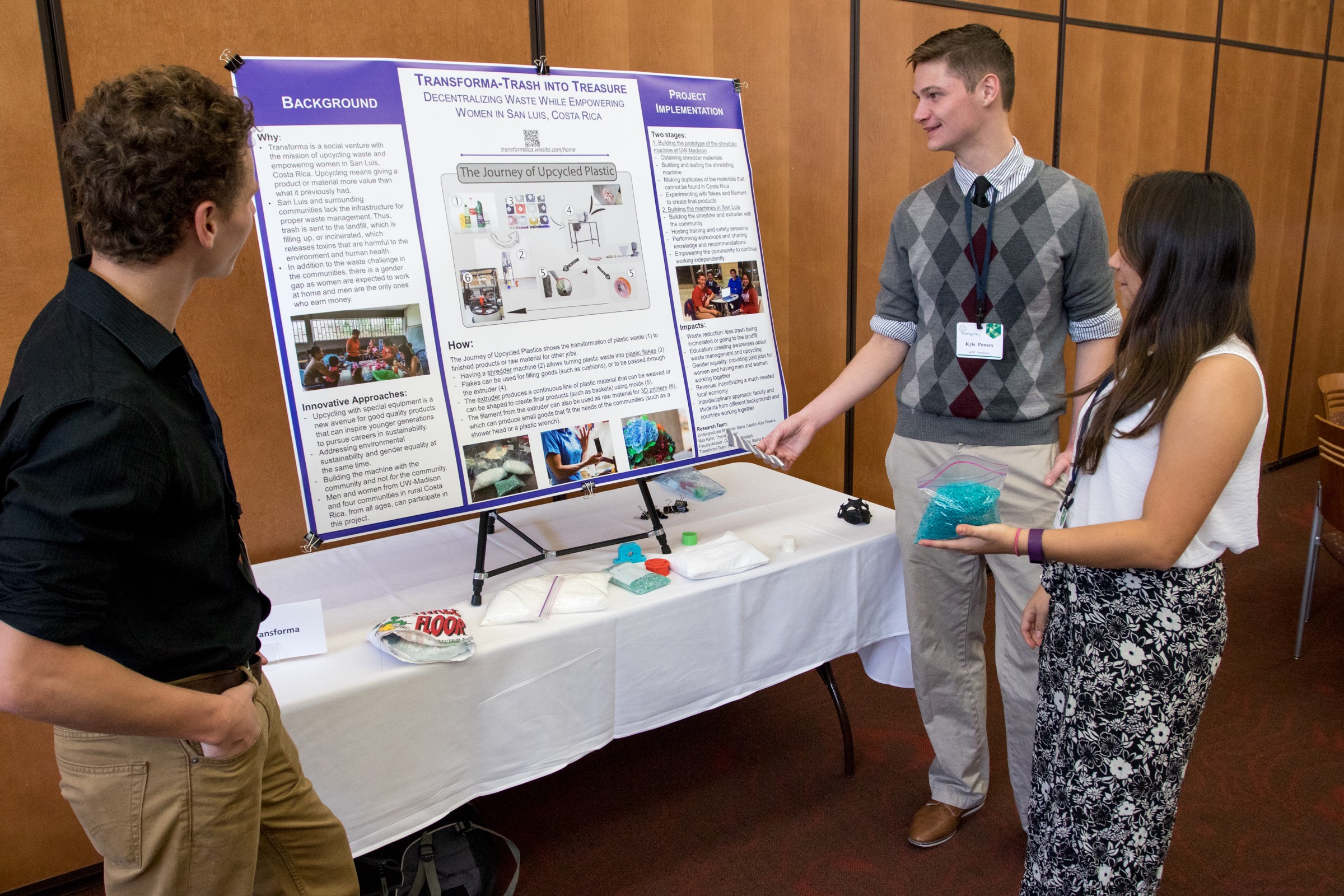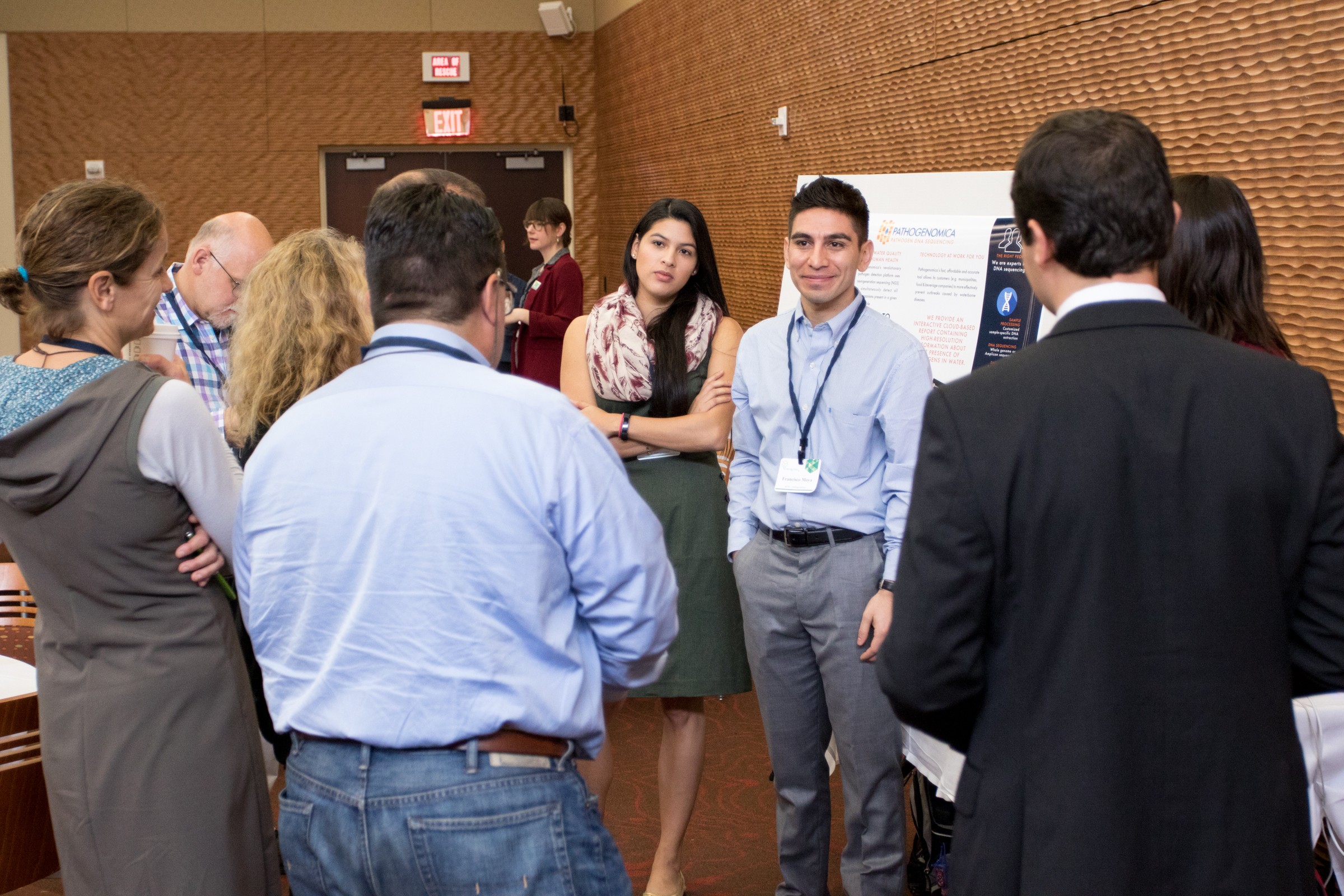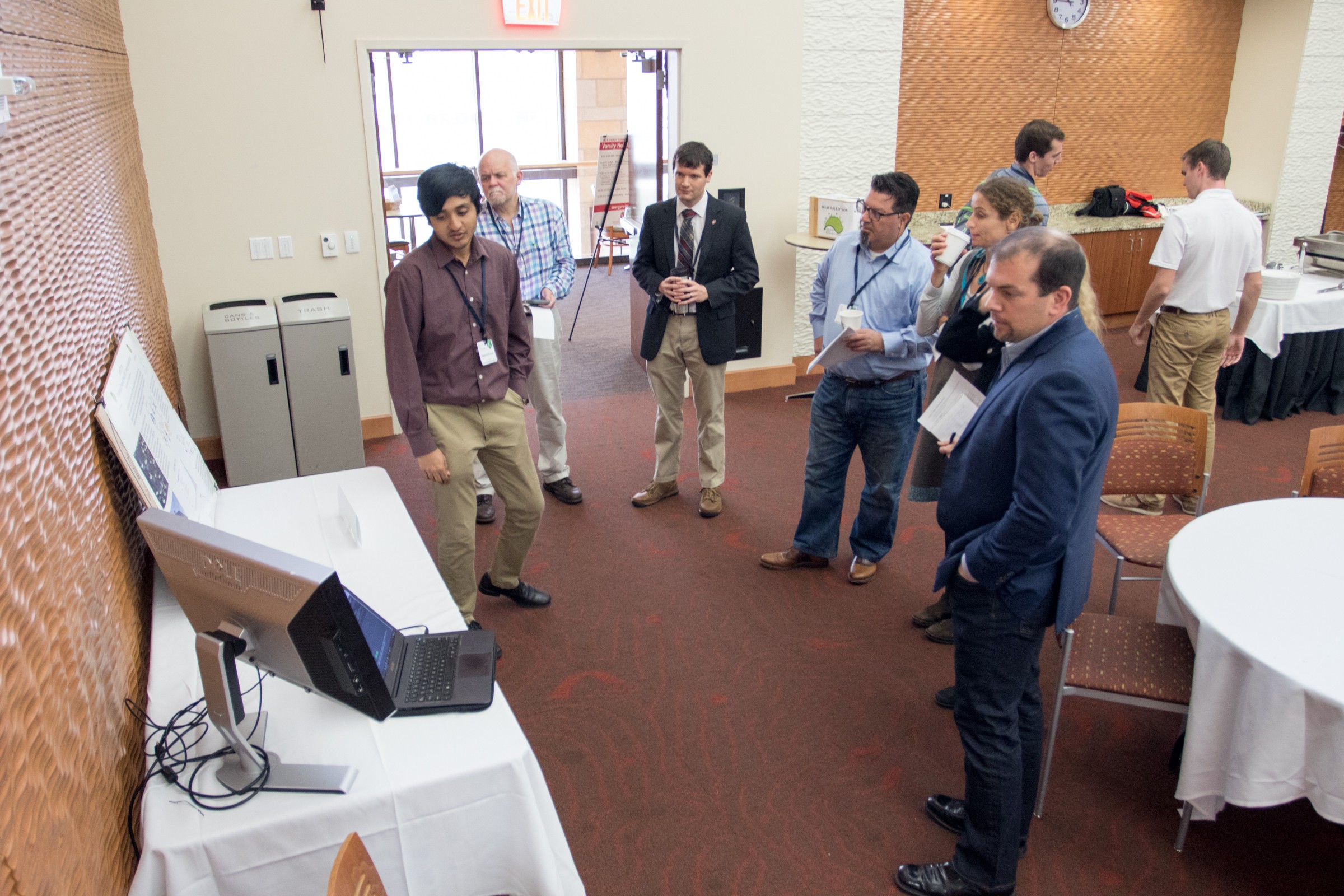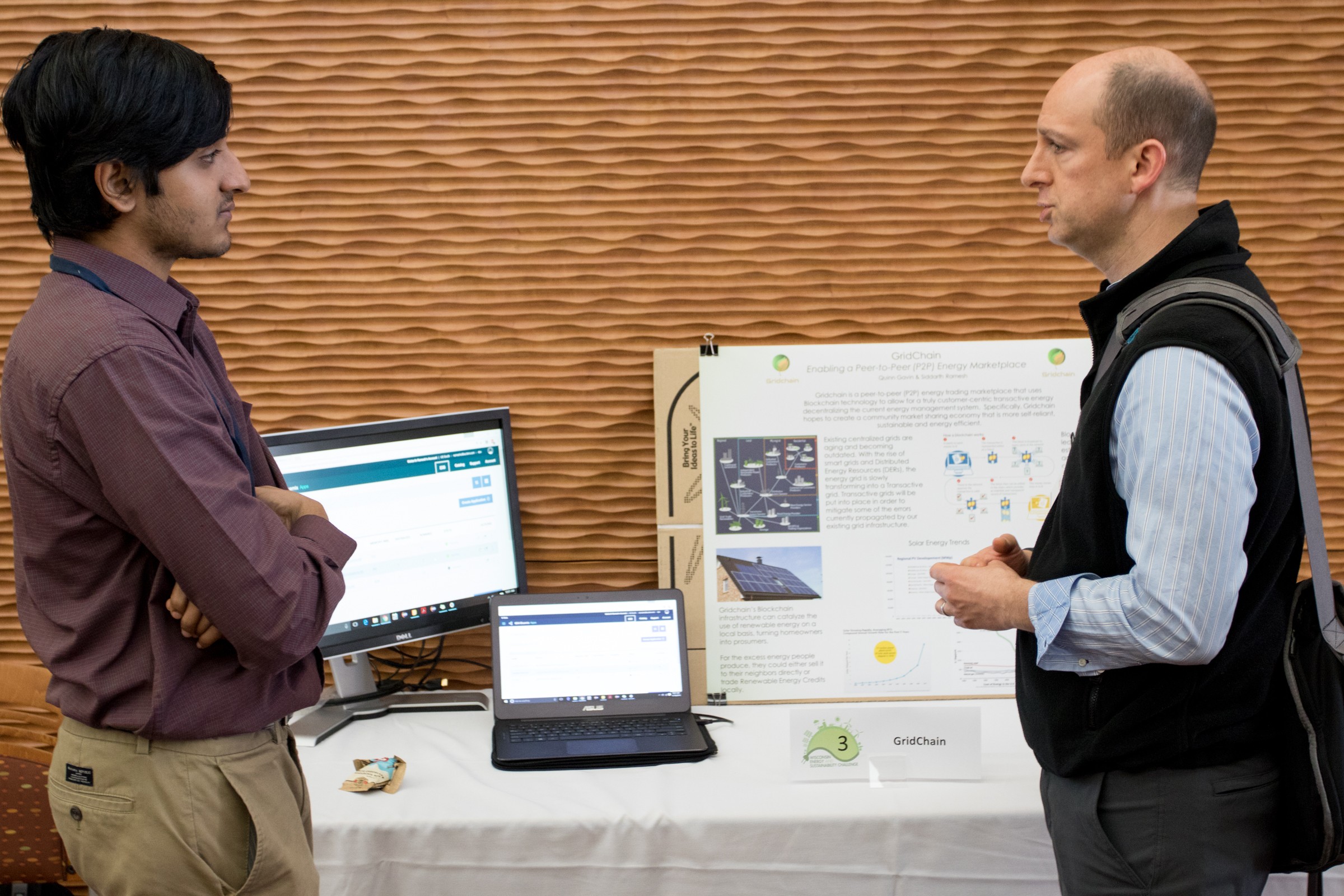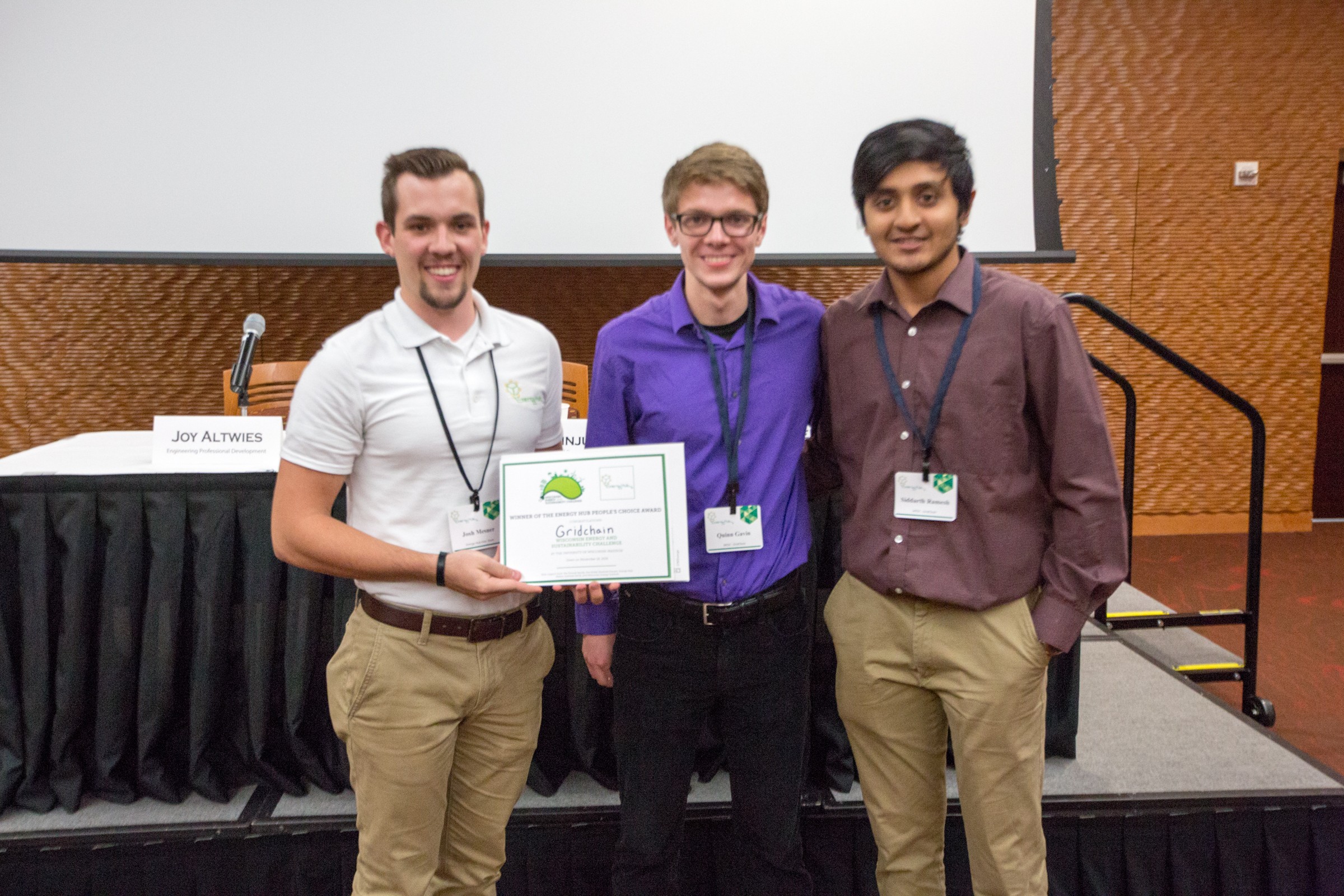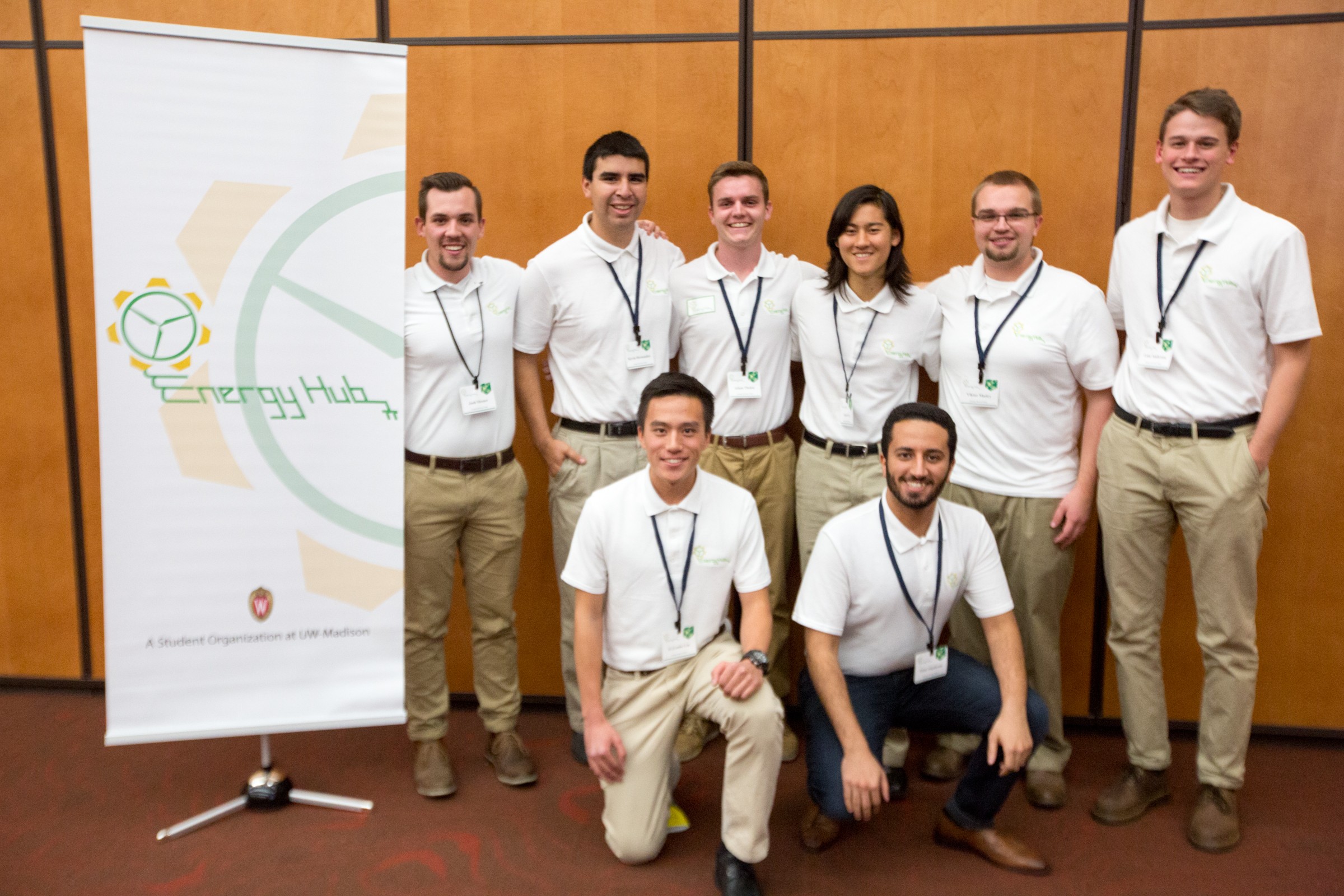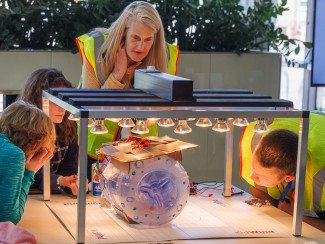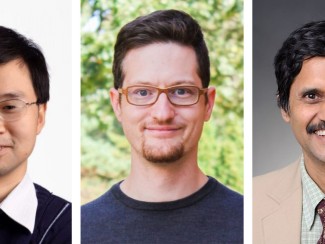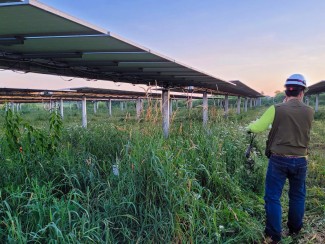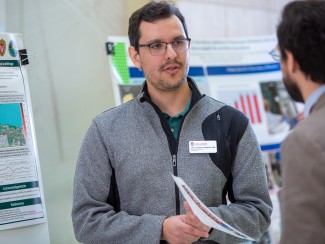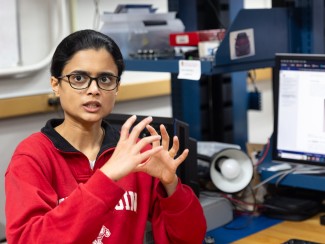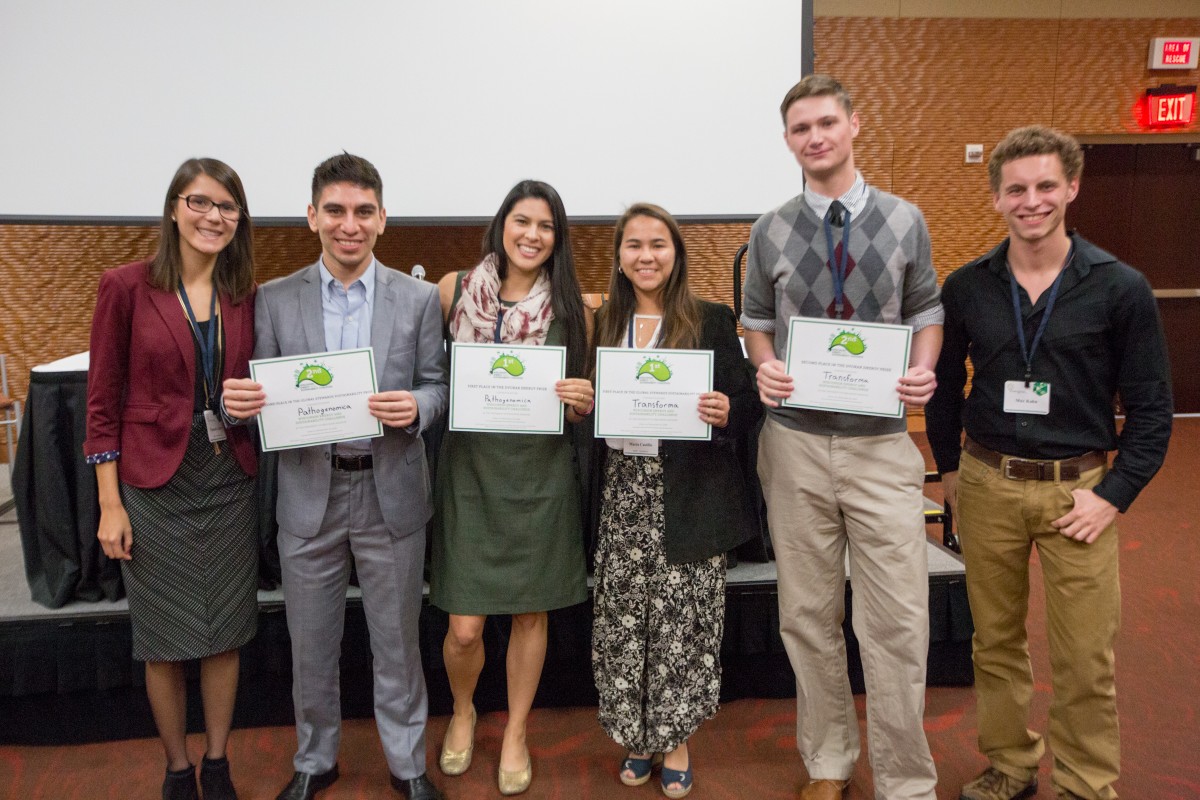
This year’s Wisconsin Energy and Sustainability Challenge (WESC) proved that University of Wisconsin–Madison students promise to be at the forefront of sustainable innovations for years to come.
The competition, held on November 18 at the annual Energy Hub conference, called on students to submit ideas that contribute to bettering our environment through sustainability. This includes both social and technical innovations designed to improve issues such as energy usage, biodiversity, water quality and more.
The two top prize winners boldly envision plans that benefit the environment and public health all while remaining socially conscious.
Transforma, winners of the Global Stewards Sustainability Prize, devised a strategy to transform plastic waste into viable products using easy-to-build machines that shred and sort by plastic type and color. The resulting plastic material will be able to be used with 3D printing to recycle the waste into various items. The team plans to empower unemployed women in Costa Rica, where the project will be based, to collect this plastic waste and sell these recycled products. This symbiotic relationship could help Transforma thrive while substantially improving Costa Rican communities.
“This award will ensure we have enough money to make alterations to the system,” Transforma contributor Kyle Powers explains when envisioning plans for the future. “Then we’ll look into applying for more grants and investors to fund two or more of us to go out to Costa Rica with all the materials and actually start building the machines.”
The Transforma team had a great connection to the social impacts of their project and a plan for a piloting it in a rural community in Costa Rica. Meanwhile, the Pathogenomica team demonstrated a clear technological advantage compared to existing pathogen-detecting methods and an understanding of the impact that their technology could have both in the near term and longer term.
Scott Williams
The team that won the Dvorak Energy Prize, Pathogenomica, hopes to capitalize on the emerging DNA sequencing movement to use the technology to help prevent outbreaks of water-borne diseases. The start-up company plans to offer a subscription plan for various corporations, initially within the food and beverage market, to test for pathogens in products before release into the market, benefiting the company as well as providing food safety for consumers.
“DNA sequencing is a new technology that is going to be implemented in the short-term future. We want to be the first people that does this for pathogen detection,” says Pathogenomica team member Pamela Camejo. “There are other companies in DNA sequencing but our identification with quantification is something no one has done before. So this is a more reliable method providing faster results while connecting something that is easily used for real life research.”
“The judges were impressed by the variety of interesting ideas that the students had come up with,” said Scott Williams, research and education coordinator for the Wisconsin Energy Institute. “The Transforma team had a great connection to the social impacts of their project and a plan for a piloting it in a rural community in Costa Rica. Meanwhile, the Pathogenomica team demonstrated a clear technological advantage compared to existing pathogen-detecting methods and an understanding of the impact that their technology could have both in the near term and longer term.”
Both the Dvorak Energy Prize and the Global Stewards Sustainability Prize awarded winning student groups $5,000 towards future development of their product. Judging criteria included considering financial and executional feasibility, innovation, solving a relevant problem and benefiting the environment. Transforma went on to win the second place Dvorak Energy Prize of $1,500, while Pathogenomica took second place in the Global Stewards Energy Prize, also worth $1,500. A third prize, the Energy Hub People’s Choice Prize of $500, awarded to Gridchain, a group that developed technology designed to enable a peer-to-peer energy trade marketplace. This year’s competition was supported by the Dvorak Family, the Global Stewards Society, and Energy Hub.
Judges for the competition were Jeffrey Anthony, Director of Business Development and the Energy Innovation Center at the Mid-west Energy Research Consortium; Michael Doucas, Founding Partner of Morpheus Advisors; Eric Dvorak, Business Development and Design Engineer at DVO; Sherrie Gruder, Sustainable Design Specialist at UW-Extension, and Ann Terlaak, Associate Professor at the Wisconsin School of Business.
Learn more about the Wisconsin Energy and Sustainability Challenge

